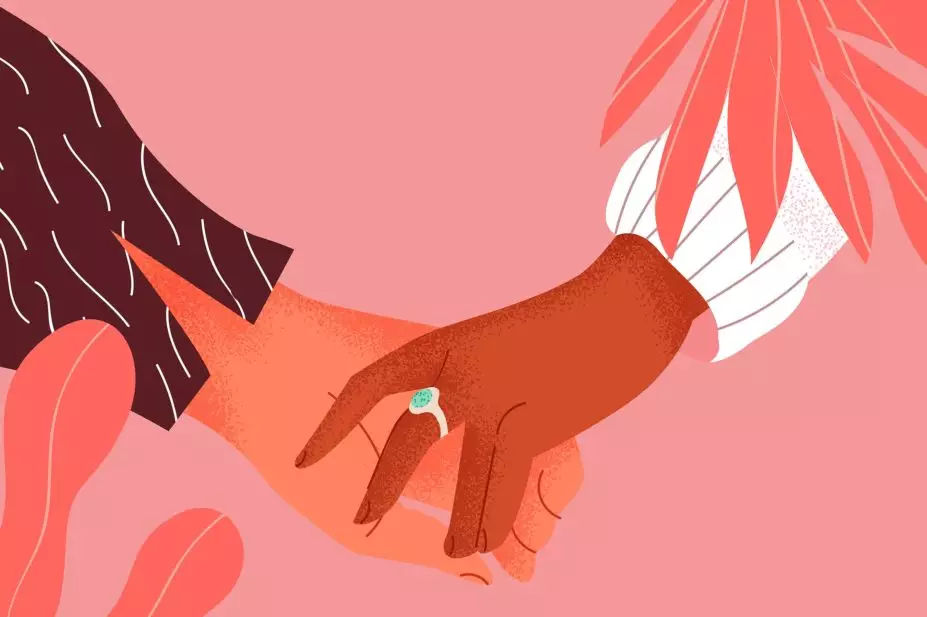
Shutterstock.com
It’s October — Breast Cancer Awareness Month — and for me, a time when I reflect on my own experience of breast cancer and how it has changed me as a pharmacy lecturer.
Almost 6 years ago, aged 48, I found an area in my right breast that just did not feel right. I visited my GP who, although not initially concerned, thankfully referred me for investigation.
In February 2020, almost exactly five years after having my right breast removed and following an unsuccessful immediate reconstruction, I had my final reconstructive surgery, using a technique called lipomodelling, and had a nipple reconstructed.
The day the dressings were removed, revealing my new nipple, I cried; I felt that the world had been lifted from my shoulders. I had not realised how much of an emotional burden I was carrying throughout my treatment, until it was lifted.
In 2018, Liz O’Riordan and Trisha Greenhalgh, both doctors who have had breast cancer, published a brilliant book: the
Complete Guide to Breast Cancer: How to Feel Empowered and Take Control
, which includes a chapter on reconstruction; I wish I had had this book when I was making decisions about my care, and now recommend it for anyone newly diagnosed with breast cancer. Because, for me, it was the emotional recovery that was the hardest.
Psychologist Cordelia Galgut, describing her own experience with breast cancer, says “a part of the body associated with pleasure and gentle touching becomes a victim of a brutal and public attack … despite medical advances, surgery for breast cancer is a deeply traumatic and frightening experience”.
Reading this reassured me that my feelings were entirely normal, and I now take every opportunity to advise those affected by cancer to make contact with organisations like Maggie’s, Breast Cancer Now and Macmillan Cancer Support, not just for the essential information they provide but also the emotional support they offer.
However, my biggest learning from this whole experience was realising the fundamental importance of person-centred care. And this new understanding has impacted heavily on my work as a pharmacist and an educator.
Before I was a patient with cancer, I would have argued that I always delivered person-centred care; I always tried to see the whole person, not just their disease or drug treatment.
But, in reality, when we are busy and under pressure, we tend to just focus on what needs to be done, rather than taking the time to involve patients in decisions about their care.
I, for one, was often guilty of focusing on drug safety and efficacy, without determining what was most important to the patient.
As a patient, I have had both positive and negative experiences — often, the difference was not down to the standard of medical care but the quality of my interactions with the healthcare professionals. I was not just a cancerous breast, I was a person with a cancerous breast, and when I was treated as such and was actually involved in decisions about my care, it felt amazing.
For example, after around nine months of tamoxifen treatment, I was really struggling with the side effects, and I dreaded the prospect of having to take it for another ten years. I was experiencing weight gain, fatigue, mood disturbances and flushing — all while recovering from surgery.
At a regular review appointment, my breast consultant told me that, owing to my relatively low risk of recurrence of breast cancer, I could choose to stop taking the medication. The oncologist had explained the risks and benefits before I started treatment but, at the time, I was too shell-shocked to take it all in.
After being told that I had the option to stop, my attitude to tamoxifen changed completely — I stopped seeing the drug as just something that caused horrible side effects. Instead, I focused on the positive risk reduction, and I actually made the choice to continue, despite the adverse effects.
As a result of this experience, person-centred care is now absolutely embedded in my role of educating the next generation of pharmacists. And I’m keen to make breast cancer awareness part of my students’ practice too. Had I not been familiar with my breasts, I would never have recognised when something was wrong.
Pharmacists should consider opportunistic interventions with young women; for example, when they are supplying oral contraceptives. Breast Cancer Now has some excellent resources to help with this, including ‘Know Your Breasts: a quick guide to being breast aware’
, which can be ordered or downloaded online.
Breast cancer has permanently changed me. A big part of coming to terms with the new me is sharing my experience so that others learn from it — I thank you for being part of that.
Ruth Edwards, head of professional experience and senior lecturer, Aston Pharmacy School, Aston University, Birmingham
You may also be interested in
The importance of diverse clinical imagery within health education

Entrustable professional activities: a new approach to supervising trainee pharmacists on clinical placements
